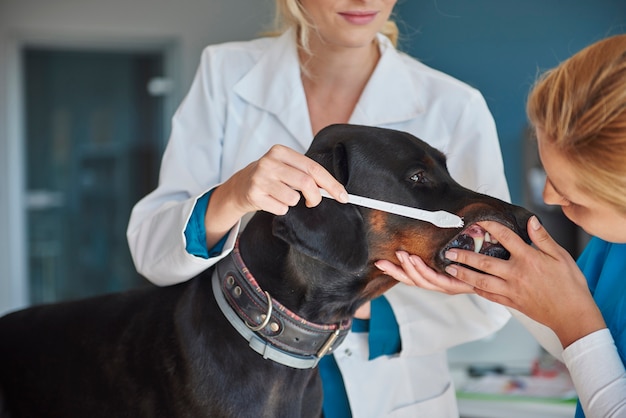Recognizing Signs Your Pet Needs Immediate Vet Attention


Recognizing Signs Your Pet Needs Immediate Vet Attention
As a devoted pet owner, you know your dog or cat better than anyone. When something seems "off" with your companion, it can be difficult to decide whether to watch and wait, schedule a routine checkup, or rush to the veterinarian. At Coble Animal Hospital, we understand how stressful it can be to interpret pet emergency symptoms and make the best decision for your furry family member. Our Springfield, IL location has been caring for pets in Springfield and surrounding communities for generations, and our veterinary team is here to guide you when urgent health concerns arise.
In this post, we’ll help you recognize the warning signs that mean your pet needs prompt veterinary care. You’ll learn which symptoms require immediate attention, what might be causing them, and when you should schedule an appointment with our veterinarians. We’ll also cover practical steps to take at home, how local pet owners can access quality veterinary services near me, and how our comprehensive approach at Coble Animal Hospital ensures your companion gets the best care possible. Whether you’re searching for pet emergency symptoms in Springfield or simply want peace of mind about when to see a vet, this guide is designed for you.
How to Spot Pet Emergency Symptoms
Knowing when your pet’s behavior or physical condition signals a true emergency can be challenging. Some issues develop gradually, while others appear suddenly and can escalate in minutes. Trusting your instincts as a pet owner is important, but certain red flags require urgent veterinary attention.
Key Symptoms That Indicate a Veterinary Emergency
Some of the most critical pet emergency symptoms to watch for include difficulty breathing, severe bleeding that does not stop within a few minutes, sudden collapse or inability to stand, persistent vomiting or diarrhea (especially if it is bloody), obvious broken bones or severe trauma, seizures that last more than a couple of minutes or recur frequently, and sudden swelling of the abdomen with signs of distress. Other warning signs are labored breathing, blue or pale gums, loss of consciousness, exposure to toxins or poisons, extreme lethargy, and straining to urinate without producing any urine. In cats, refusal to eat or drink for more than 24 hours, or any signs of urinary blockage, are particularly urgent.
Additionally, subtle changes such as sudden disorientation, head tilting, stumbling, or persistent coughing can signal underlying health threats. If your pet seems in pain, is vocalizing more than usual, or exhibits unusual aggression or withdrawal, these can also be symptoms of a serious health issue. Recognizing these signs early and seeking prompt care is crucial for the best outcome.
Recognizing Less Obvious Symptoms
Not all emergencies are dramatic. For example, you might notice your dog is suddenly unwilling to move or is limping after a walk, or your cat is hiding and refusing to come out. Pets are naturally good at masking pain, so changes in routine behaviors, appetite, or bathroom habits can be the first indication of a problem. In our region, seasonal issues like heatstroke in summer or antifreeze poisoning in winter also require vigilance.
If your pet is displaying any combination of the above symptoms, or you simply have a gut feeling that something is wrong, it is always better to err on the side of caution. Our veterinary professionals encourage you to contact us for guidance whenever you’re uncertain.
Understanding the Causes Behind Emergency Symptoms
Knowing why these symptoms occur can help you respond appropriately and prevent future emergencies. Many pet emergency symptoms stem from underlying conditions such as heart disease, infections, poisoning, injuries, or congenital abnormalities. For example, difficulty breathing may be caused by heart failure, allergic reactions, or choking on a foreign object. Severe vomiting and diarrhea are often linked to gastrointestinal infections, ingestion of toxins, or sudden dietary changes.
Common Triggers for Sudden Illness or Injury
In dogs, active play or accidents can result in broken bones, dislocated joints, or torn ligaments. Cats, especially those who venture outdoors, can suffer injuries from car accidents or fights with other animals. Poisoning from household products, medications, certain foods, or plants is unfortunately common, particularly in curious puppies and kittens.
Medical emergencies such as bloat (gastric dilatation volvulus) in large breed dogs, urinary blockages in male cats, or complications from chronic diseases like diabetes or kidney failure can arise suddenly. These situations often progress rapidly and require immediate veterinary intervention.
Environmental and Regional Factors
Living in Springfield and the surrounding area means pets can be exposed to specific threats such as tick-borne illnesses, seasonal allergies, and extreme weather events. For example, overheating during a Midwest summer or frostbite in the winter can cause acute distress and necessitate urgent care. The presence of local wildlife or plants also increases the risk of accidental toxin exposure. Understanding these regional risks helps pet owners stay proactive about their pet’s health.
Treatment and What to Expect at the Vet
When you bring your pet to Coble Animal Hospital for urgent concerns, our veterinary team takes a thorough and compassionate approach. The first step is a comprehensive examination to assess your pet’s condition. We utilize advanced diagnostic tools, including digital radiology and our on-site diagnostic laboratory services, to quickly identify the underlying problem.
Immediate Care for Emergency Symptoms
Treatment depends on your pet’s specific symptoms and diagnosis. For example, pets with breathing difficulties may receive oxygen therapy and supportive medications, while those experiencing seizures might require anti-convulsant drugs and careful monitoring. Wounds and fractures are managed with pain control, wound care, or surgical intervention if necessary. Poisoning cases often involve inducing vomiting, administering activated charcoal, and providing intravenous fluids.
Our veterinarians are equipped to perform a wide range of surgical procedures if your pet’s emergency is the result of trauma, internal injury, or a life-threatening medical condition. If your pet is in pain or distress, we prioritize comfort through our dedicated pain management services, ensuring your companion feels secure and cared for throughout the treatment process.
What to Bring and How to Prepare
If you suspect your pet is experiencing an emergency, try to safely transport them to our clinic as quickly as possible. Bring any packaging or information about potential toxins, a list of medications your pet is taking, and details about recent symptoms or changes in behavior. Our veterinary professionals will ask thorough questions to guide diagnosis and tailor treatment to your pet’s unique needs.
Preventing Emergencies and Caring for Your Pet at Home
While not every emergency can be avoided, there are important steps you can take to minimize risk and keep your pet healthy. Regular wellness examinations and preventive care are the foundation for early detection of health issues. Staying up-to-date with vaccination services, using parasite prevention, and following your veterinarian’s nutritional advice all contribute to your pet’s wellbeing.
Home Care Tips for Pet Safety
Pet-proofing your home by securing medications, cleaning products, and toxic foods is essential. Supervising outdoor activities, especially near roads or bodies of water, helps prevent injury. During extreme weather, limit time outdoors and provide adequate shelter. For cats, keeping the litter box clean and monitoring for changes in urination or defecation can alert you to urinary tract concerns before they become emergencies.
If your pet develops a minor cut or scrape, gently clean the area and monitor for signs of infection. For mild stomach upset, withhold food for a few hours and offer small amounts of water; however, if vomiting or diarrhea lasts more than a day or is accompanied by lethargy, seek veterinary advice. Always keep your veterinarian’s contact information handy, and don’t hesitate to call if you are unsure about your pet’s symptoms.
When to See a Vet: Guidelines for Seeking Prompt Care
Deciding when to see a vet for your pet’s symptoms is sometimes the hardest part. As a general rule, if your pet is having difficulty breathing, not responding to you, bleeding uncontrollably, or showing signs of severe pain, immediate veterinary attention is required. Persistent vomiting, diarrhea, or refusal to eat or drink for more than 24 hours in cats and 48 hours in dogs also warrants a prompt visit.
If you notice limping, sudden lameness, or signs of trauma after an accident, schedule an appointment as soon as possible. Other indicators to seek care include new lumps or swelling, sudden weight loss, coughing that interferes with breathing, or confusion and disorientation. In Springfield, timely access to pet diagnostic laboratory services near me can be the key to identifying and treating these conditions early.
Our veterinarians at Coble Animal Hospital are committed to providing comprehensive care and clear guidance to help you make the best choices for your beloved companion. If you are ever in doubt about whether your pet’s symptoms are an emergency, it is always safer to reach out and let our veterinary professionals advise you.
Compassionate Support from Your Local Veterinary Team
Emergencies can happen at any time, and knowing how to recognize pet emergency symptoms is one of the best ways you can protect your pet’s health. As a trusted resource for veterinary services near me, Coble Animal Hospital is here to support you with advanced diagnostics, skilled veterinary professionals, and a compassionate approach to care. Whether your pet needs a wellness exam, urgent testing, or advanced treatment, our team is ready to help.
If you notice any concerning symptoms or have questions about when to see a vet, we encourage you to schedule an appointment with our veterinarians. You can reach us at (217) 789-0011 or visit us at 2525 East Sangamon Avenue, Springfield, IL 62702. We are proud to serve Springfield and surrounding communities with reliable pet diagnostic laboratory services in Springfield, and our mission is to provide the highest standard of care for every patient.
Your pet’s wellbeing is our top priority. For guidance, reassurance, or to schedule a visit with the best vet near me, contact Coble Animal Hospital today. If you need more information on prompt veterinary care, visit our page on prompt care clinic for non-life-threatening illnesses and injuries in pets. Your companion’s health and comfort are in good hands with our veterinary team.

















